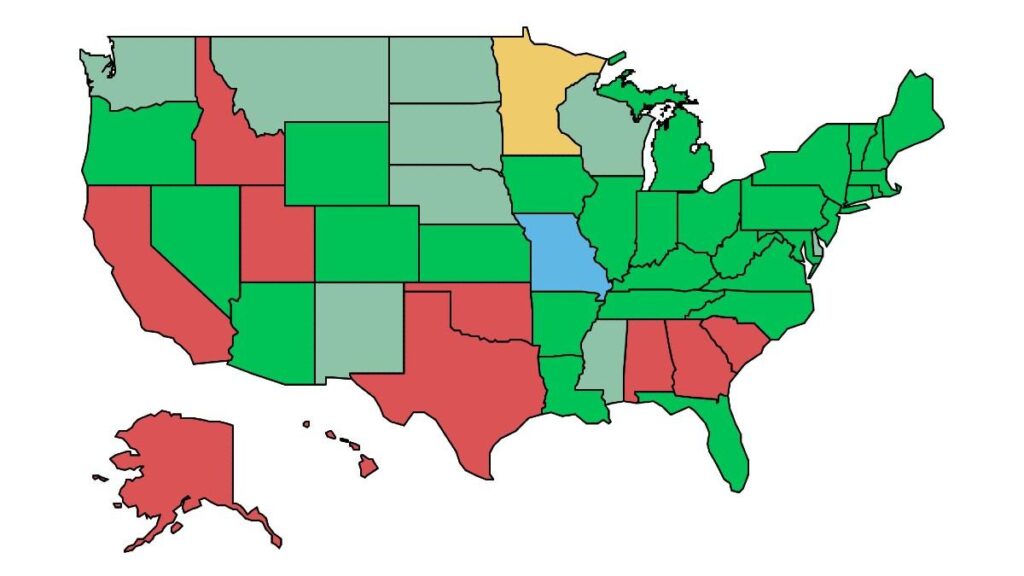A growing number of Americans are expressing concerns about the impact of legal sports betting on society and the integrity of sports, according to a recent survey by the Pew Research Center. Once hailed as a potential boost for entertainment and economic growth, legalized sports gambling is now facing increasing scrutiny amid worries over addiction, fairness, and the influence of money on athletic competition. This shift in public opinion marks a significant development in the ongoing debate over the role of sports betting in American culture.
Americans Express Growing Concern Over Negative Societal Impact of Legal Sports Betting
Recent data from Pew Research Center highlight an increasing wariness among Americans about the societal implications of legal sports betting. A growing proportion of respondents express concerns about how betting might foster addictive behavior and exploit vulnerable populations. Many fear that expanded betting could weaken the integrity of sports, shifting the focus from athletic achievement to monetary gain. In particular, there is widespread anxiety about the normalization of gambling among younger demographics, which could lead to long-term social consequences.
Key concerns raised by survey participants include:
- Rising rates of problem gambling and addiction
- Increased financial strain on low-income families
- Diminished trust in the fairness of sporting events
- Promotion of a gambling culture through constant advertising
These apprehensions are reflected in public sentiment, which remains sharply divided along generational lines. Younger adults tend to see legal sports betting as less harmful, whereas older populations overwhelmingly view it as a negative development. The divide suggests that policymakers face a complex challenge balancing economic benefits derived from gambling revenues against protecting social welfare.
| Age Group | Perceive Legal Sports Betting as Harmful (%) |
|---|---|
| 18-29 | 38% |
| 30-49 | 55% |
| 50-64 | 68% |
| 65+ | 74% |
Public Cites Corruption and Integrity Risks in Professional Sports
Recent surveys reveal a growing concern among Americans over the integrity of professional sports, with many linking the rise of legalized sports betting to increased corruption risks. Fans express worry that the influence of gambling could lead to match-fixing, biased officiating, and undue pressure on athletes, undermining the fairness and authenticity of the games they love. This skepticism extends beyond individual sports, fueling broader doubts about whether the governing bodies can effectively safeguard the spirit of competition amid lucrative betting interests.
Key concerns highlighted by the public include:
- Potential manipulation of game outcomes to favor betting results
- Compromised decision-making by referees and officials
- Increased instances of illegal betting rings exploiting pro sports
- Diminished fan trust and long-term reputation damage to leagues
| Risk Factor | Perceived Impact | Public Support for Regulation |
|---|---|---|
| Match-Fixing | High | 82% |
| Bribery of Officials | Medium | 75% |
| Illegal Betting Rings | High | 88% |
| Fan Trust Erosion | Very High | 90% |
Experts Recommend Stricter Regulation and Enhanced Consumer Protections
Industry experts have sounded the alarm on the rapid expansion of legal sports betting, urging policymakers to implement stricter regulations aimed at mitigating potential harms. Concerns center on the ease of access and the aggressive marketing tactics that may disproportionately affect vulnerable populations, including young adults and those prone to gambling addiction. Analysts emphasize the need for comprehensive frameworks that not only oversee sportsbook operations but also adapt quickly to emerging technologies and betting platforms.
Proposals from specialists highlight several key consumer protections that should be standardized nationwide to ensure fair play and safeguard users. These include:
- Mandatory self-exclusion programs allowing bettors to voluntarily restrict their access.
- Enhanced transparency in odds reporting and payout records to prevent manipulation.
- Strict data privacy regulations to protect personal and financial information of users.
- Funding for public awareness campaigns focused on the risks associated with gambling.
| Protection Measure | Purpose |
|---|---|
| Self-Exclusion Programs | Prevent compulsive betting |
| Transparent Odds Reporting | Ensure fairness |
| Data Privacy Rules | Protect user information |
| Awareness Campaigns | Educate consumers |
Policy Makers Urged to Balance Economic Benefits With Ethical Considerations
As the legalization of sports betting spreads across the United States, lawmakers face mounting pressure to navigate the complex intersection of economic opportunity and ethical responsibility. While revenue from sports gambling generates substantial tax income and stimulates local economies, critics highlight the potential social costs that accompany this growth. Concerns range from increased gambling addiction rates to the erosion of integrity within professional sports. Experts emphasize the importance of implementing robust regulatory frameworks that prioritize consumer protection, transparency, and fairness alongside financial incentives.
Policy makers are urged to consider multifaceted approaches that include:
- Funding for public education on responsible gambling
- Strict enforcement against match-fixing and illegal betting rings
- Provision of accessible treatment programs for gambling addiction
- Limiting advertising efforts targeting vulnerable populations
Below is a summary of the trade-offs faced by policy makers:
| Consideration | Economic Benefit | Ethical Concern |
|---|---|---|
| Tax Revenue | Boosts state budgets | Dependency on gambling income |
| Job Creation | New employment opportunities | Potential for exploitation in gig roles |
| Community Impact | Supports local businesses | Risk of increased crime and addiction |
Key Takeaways
As public opinion shifts, the growing skepticism toward legal sports betting signals a potential reevaluation of its place in American society and the sports industry. The Pew Research Center’s findings highlight concerns that extend beyond individual wagering habits, touching on broader implications for sports integrity and social well-being. As debates over regulation and ethics continue, policymakers and stakeholders will need to carefully weigh these evolving attitudes in shaping the future of sports betting in the United States.





